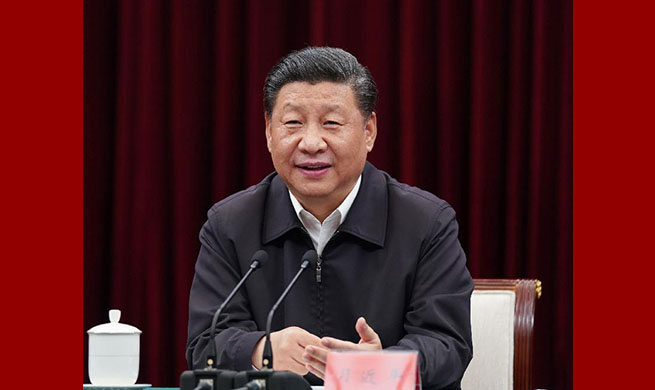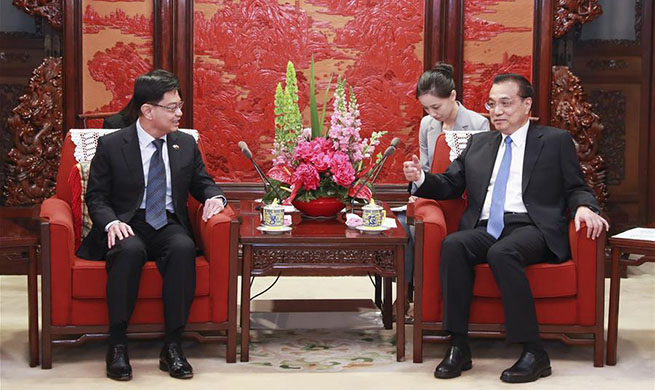GABORONE, May 23 (Xinhua) -- Botswana on Thursday officially announced the lifting of a ban on hunting of elephants and plans to implement controlled hunting.
Kitso Mokaila, the country's minister of Environment, Natural resources Conservation and Tourism, told a press conference on Thursday afternoon that following an extensive consultation process with all the stakeholders involved, the government has made the decision to lift the ban.
The announcement by government comes two months after Botswana's President Mokgweetsi Masisi said his government was considering lifting the ban and was consulting with stakeholders.
Mokaila, however, said hunting will be allowed on a small, strictly controlled basis, with fewer than 400 elephant licenses to be issued annually.
Botswana currently boasts the largest African elephant population of some 130,000 in the latest census conducted in 2018.
The minister said the decision to lift the ban was guided by the findings of a cabinet sub-committee on the hunting ban that was set in July 2018 to make consultations in communities that have massive elephant population and other stakeholders.
He said key amongst the findings from the committee was that the number and high levels of human-elephant conflict and the consequence on livelihoods were increasing alarmingly.
"There is a negative impact on the hunting suspension on the livelihoods, particularly for community based organizations that were previously benefiting from consumptive utilization," said Mokaila.
The ban has been in effect since 2014, initiated by former President Seretse Khama Ian Khama.
Botswana hosted an Elephant Summit early this month in Kasane, northwestern Botswana, which was attended by presidents of Botswana, Namibia, Zambia, Zimbabwe and representatives from Angola.
Its objective was to raise awareness on the status of African elephants in the Southern African region, which is home to 60 percent of the world's elephant population.
The consensus was that countries should adopt conservation policies and practices that allow participatory decision-making processes down to the local level in human-occupied wildlife areas by enabling communities to utilize income from hunting.













